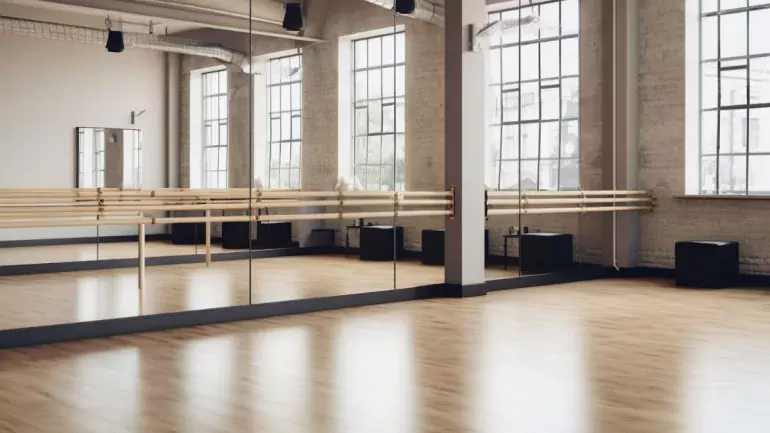ART NEWS
If you are considering opening your own dance studio or school, here are some key things you need to know to start a dance studio.
BY ALEX TOWNASTALLI, ARTCENTRON
Have you ever dreamed of turning your passion for dance into a business? Opening a dance studio or dance school might be the perfect opportunity! As a dancer, you already have the passion, experience, and knowledge to teach your craft to others. Now, explore everything you need to know to start your own successful dance studio.
Starting a Dance Studio
Many professional dancers choose to dabble in teaching and instructing at some point in their careers, whether it’s for the benefit of their peers or younger dancers. If you love the teaching and education aspect of dance, your future might belong behind the scenes as an instructor or dance studio owner.
There are plenty of reasons to become an instructor or owner—including the pay, which can often be more than what a professional dancer makes, depending on circumstances. Keep reading to learn how you can start your own dance studio!
Discovering Your Dance Studio Vision
Begin by envisioning the type of dance studio you’d like to create. Consider your target market and what classes you want to offer, from ballet to hip-hop, jazz to contemporary. Perhaps you want to focus on a specific age group or provide classes strictly for competitive dancers. Whatever your vision, figure out what will set your studio apart and develop your curriculum accordingly.
Finding the Perfect Space for Your Dance Studio
Choosing the right studio space is not just about size but also location, facilities, and accessibility. It’s also important to keep in mind that if you rent a space, the conditions of your lease can affect the value of your business. Look for a space in a safe and easily accessible area with ample parking or transit accessibility for your students. Here are some essential features your studio space should have:
- Appropriate flooring: Look for sprung wooden floors or install marley flooring to protect your dancers.
- Mirrors: Install wall-to-wall mirrors for easy and immediate self-correction.
- Bars: Provide wall-mounted and portable ballet bars for barre exercises.
- Sound system: Invest in a reliable, high-quality sound system to energize your classes.
Creating a Strong Business Strategy
Before diving into your new business, you must plan and strategize. Develop a detailed business plan outlining your objectives, target market, class offerings, pricing structure, and strategies for marketing and growth. This will help you stay organized and showcase your professionalism to potential investors or lenders.
Consider the legal aspects, such as registering your business and acquiring necessary permits. It is also crucial to have insurance covering your business and general liability to protect your studio and ensure the safety of your students.
Hiring a Dream Team
Look for qualified instructors who share your passion for dance. It might be useful to hire teachers with backgrounds in diverse styles and experiences to offer a variety of classes and attract a diverse clientele. Your team will be your studio’s backbone, so choose wisely and prioritize professionalism and communication skills.
The Rewarding Journey of Starting a Dance Studio
Much of what you need to know to start a dance studio should already be familiar to you as a dancer—it requires dedication, hard work, and a true passion for dance. With the right blend of talent, organization, and marketing, you can create a successful dance hub that continuously inspires and impacts the lives of those in your community. Embrace the challenge and embark on this rewarding journey by sharing your love for dance with others.
